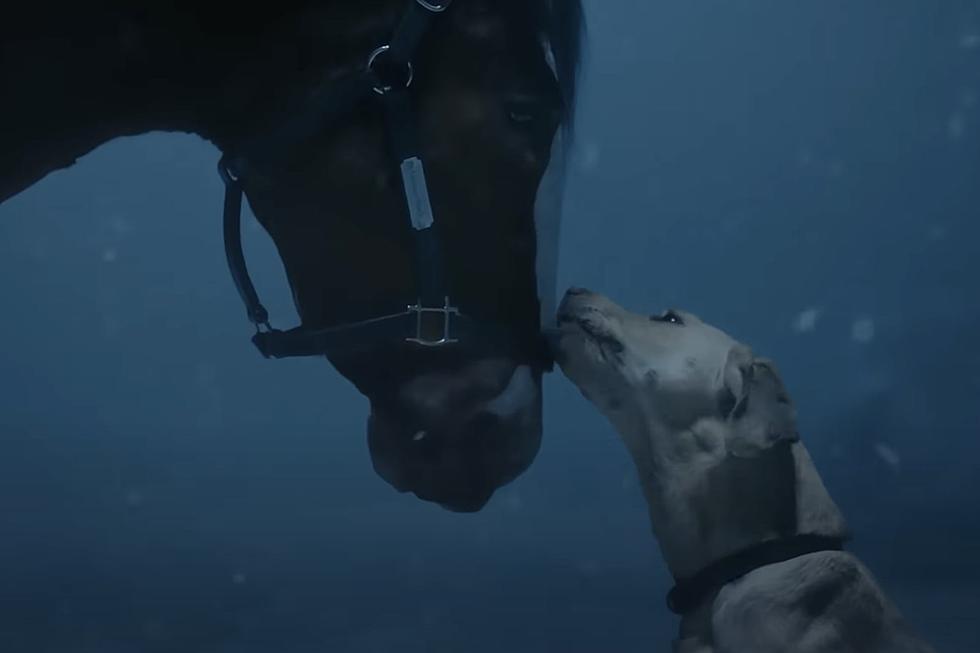
Weekend Songs: The Band, ‘Up on Cripple Creek’
Classic rock is about heavy hooks, power chords and tight harmonies. But it’s also about letting loose and enjoying the good times. And there’s no better time for that than Friday evening, when we pick up our paycheck, punch out of work and enjoy a couple days of much-needed rest and relaxation.
Plenty of rock bands have paid tribute to the working man, but few have done it with the level of honesty and clear-eyed compassion demonstrated by the Band. The group's songs are often praised for their reliance on classic instrumentation and Ozark harmonies, but they're equally notable for the lovable gallery of rogues and ne'er-do-wells who tell their stories in the lyrics -- like the adulterous alcoholic who narrates 1969's 'Up on Cripple Creek.'
A hit single from the Band's self-titled second album and one of the signature songs in their catalog, 'Up on Cripple Creek' is set apart musically by keyboardist Garth Hudson's unique decision to run a clavinet through a wah-wah pedal, creating a sound that would later become a common ingredient in '70s funk tracks but served as an unusual lead instrument in the context of the group's music. In fact, although 'Cripple Creek' is frequently held up as one of drummer and vocalist Levon Helm's finer moments, it also serves as a showcase for Hudson, whose contributions to the Band were often overshadowed by Helm and guitarist Robbie Robertson. True to form, Hudson shrugged off any fuss in the 'Classic Albums' documentary about the album, explaining simply, "It was easy to do, and we'd tried it at home. Not for that particular song, but it seemed to be good for that."
"That was just a little something extra," recalled Helm in a later interview. "Back when we were coming up, you couldn’t record a song without having a hook. Like the kick-off to [Little Richard’s] 'Keep A-Knockin’,' for instance -- that’s one of [drummer] Earl Palmer’s great licks. Garth was great at coming up with those. He’s great with chords too. That’s why the Band sounds like the Band, and not like a lot of other groups -- because of Garth’s understanding of chord progressions."
On top of Hudson's funky keys, Helm applies his distinctive vocals to a story about a man headed to Lake Charles, La., for a visit with "Little Bessie," an old acquaintance who'd left him a standing invitation to "come on by, if there's anything she could do." It's a visit our protagonist's wife would probably have a thing or two to say about if she knew, but what she doesn't know won't hurt her -- or it won't hurt the narrator anyway, especially after he takes a few pulls on the bottle and has a few rolls in the hay with his backdoor gal.
Calling it "an extension of this American mythology, this Americana," Robertson later reflected on the song in an interview with Redbeard, saying, "We're not dealing with people at the top of the ladder, we're saying 'What about that house out there in the middle of that field? What does this guy think, with that one light on upstairs, and that truck parked out there?' That's who I'm curious about. What is going on in there? And just following the story of this person, and he just drives these trucks across the whole country, and he knows these characters that he drops in on, on his travels. Just following him with a camera is really what this song's all about."
While the lyrics might be preoccupied with drinking and carousing, 'Up on Cripple Creek' also reflects the Band's deep commitment to traditional American music -- not only with its arrangement, or Helm's Arkansas-bred howl, but also with a handful of sly, subtle nods to the group's spiritual forebears. The song's title seems to be a nod to a bluegrass standard that refers to Cripple Creek as a place of peace and unencumbered fun, and while it's all quite a bit more innocent than the "drunkard's dream" of betting on horses and drinking in shacks that 'Up on Cripple Creek' depicts, it's also probably a much more honest reflection of a place and time.
Referring to the completed track as "kind of an odd construction," Robertson mused to Classic Albums that "you can hear how it all adds up in its own way" -- a statement that could just as easily be applied to the Band and its music. "There were no rules," added Helm. "It felt good, and we went with it."
More From Ultimate Classic Rock









